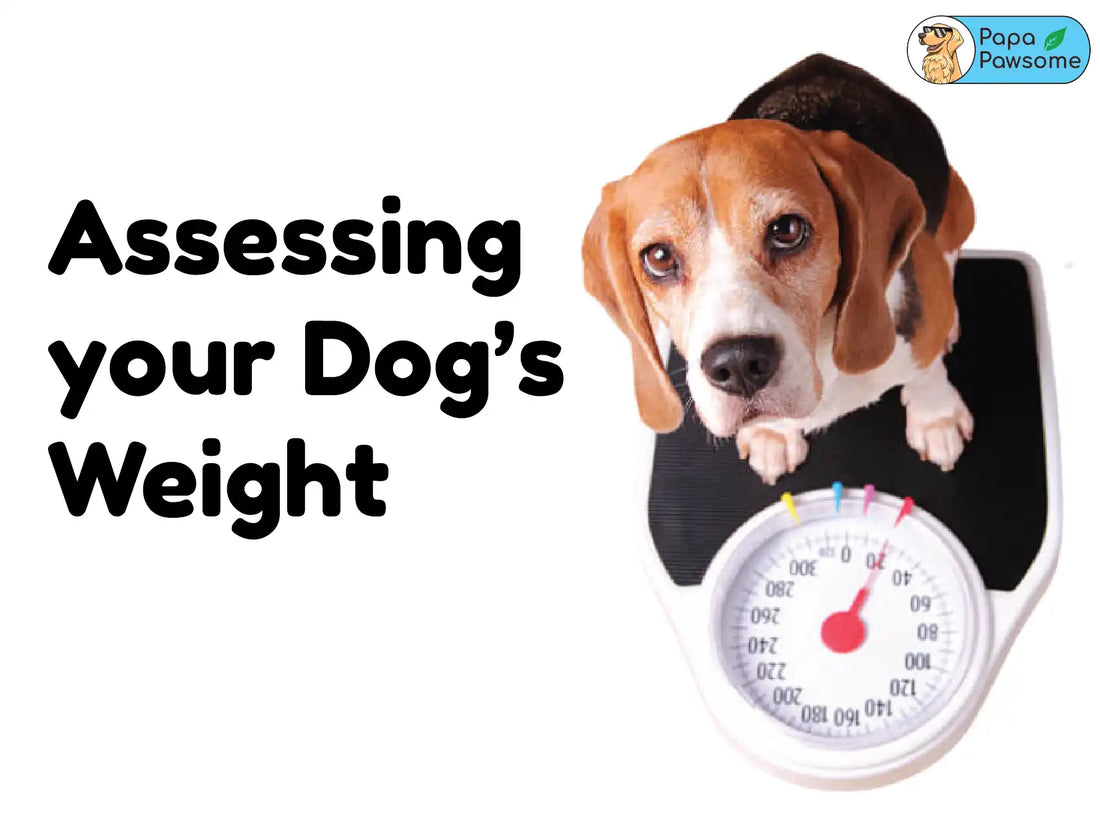
Assessing Your Dog's Weight: Why It Matters!
Omkar PatilAs a responsible dog owner, ensuring that your furry friend is in good health is crucial. One of the most common health problems that dogs face is obesity. Obesity can lead to several health issues, including diabetes, heart disease, and joint problems. It can also reduce your dog's quality of life, making them less active and less able to enjoy the things they love.
The good news is that assessing your dog's weight is relatively easy, and several ways exist. In this blog, we'll explore some of the most effective ways to determine if your dog is at a healthy weight.

Body Condition Score
The easiest way to assess if your dog is obese is by checking their body condition score (BCS). BCS ranges from 1 to 9, with 1 being emaciated and 9 being obese. To determine your dog's BCS, look and feel for the following:

Ribs: You should be able to feel your dog's ribs without pressing too hard.
Waist: Your dog should have a visible waistline when you look down at them from above
Abdominal Tuck: Your dog's belly should tuck up from the ribs towards the hind legs.
If your dog's BCS is 6 or higher, your dog is considered obese.

Scale
Another way to assess if your dog is obese is by using a scale. Weigh your dog and compare their weight to its breed standard weight. If your dog is more than 20% over their ideal weight, they are considered obese.
Activity Level
Observe your dog's activity level. If your dog is reluctant to go for walks or play, it may be obese. Overweight dogs often have trouble with mobility, and this can impact their activity levels.
Health Issues
Overweight dogs are prone to several health issues, including joint problems, diabetes, and heart disease. If your dog is exhibiting symptoms such as difficulty breathing or mobility issues, it may be obese.
If you think that your dog is obese, it's essential to take action. Speak to your veterinarian about your concerns. Your veterinarian can help you create a weight loss plan for your dog, including a healthy diet and exercise routine. You can help your dog achieve a healthy weight and live a long, happy life with proper care and attention.
In conclusion, assessing your dog's weight is critical for its overall health and well-being. By using the methods outlined in this blog, you can determine if your dog is at a healthy weight or if they need to lose weight. If you're concerned about your dog's weight, speak to your veterinarian, who can offer guidance on creating a healthy weight loss plan. You can help your furry friend live a long, healthy, and happy life with the right care, attention, and support.
Join Our Whatsap Community for more such interesting content
https://chat.whatsapp.com/BbX5qOC4TsUAxqjzY1ZOca
